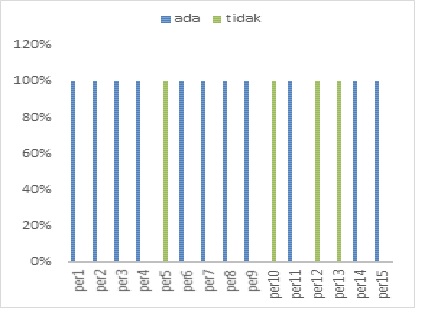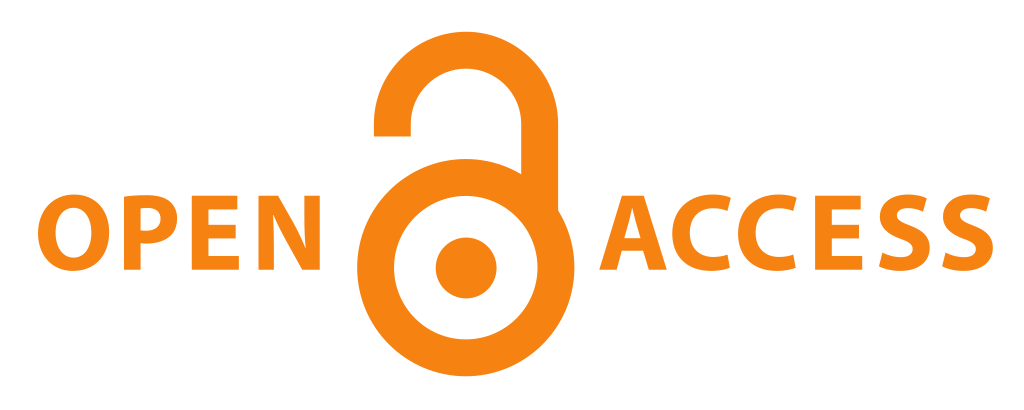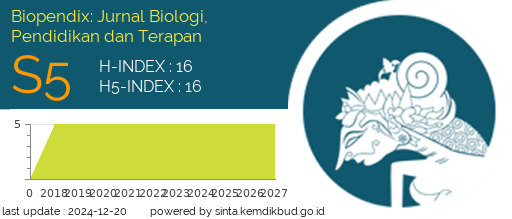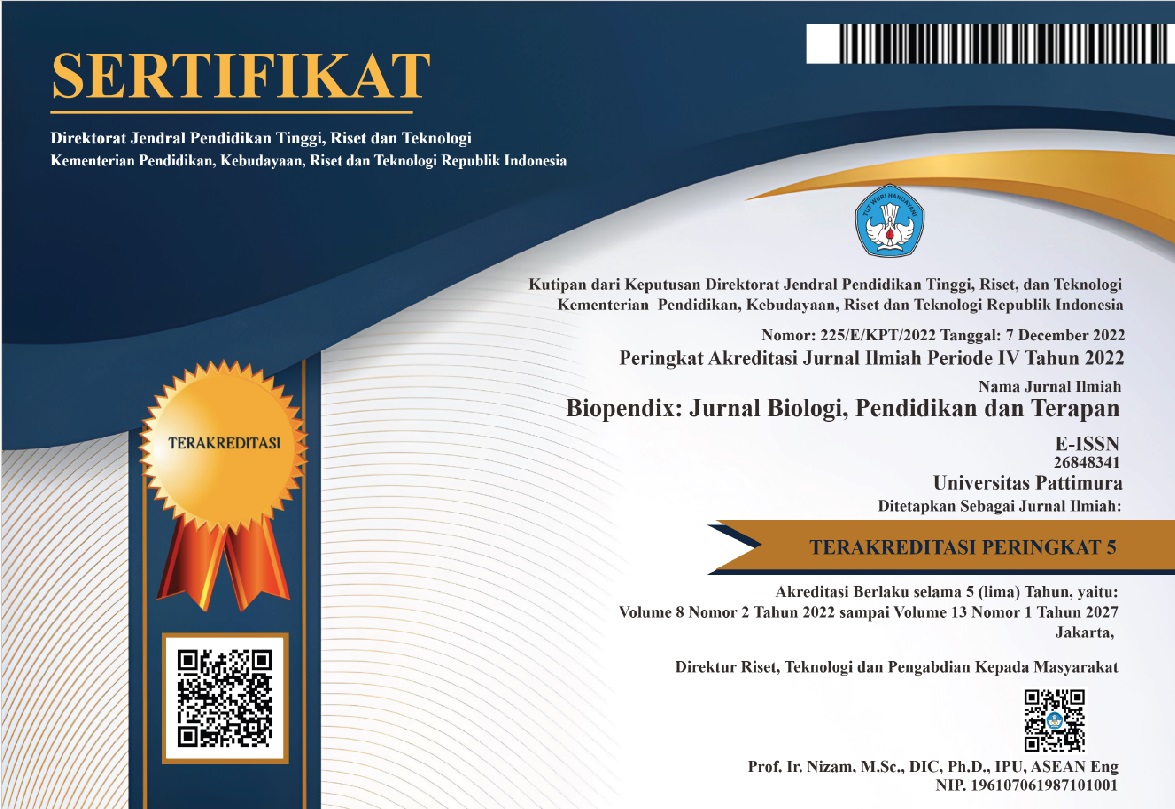ANALISIS KEBUTUHAN SISWA DAN GURU TERHADAP E-MODUL TERINTEGRASI NILAI IMTAQ DI MAN 3 KOTA PEKANBARU
Abstract
Background: This research aims to obtain information on whether students and teachers need an E-Module integrated with IMTAQ values or not. The integrated E-Module of IMTAQ values is an electronic-based module presented in electronic media, either in the form of a computer or Android, which contains writing, images and even videos that contain elements of IMTAQ values.
Methods: This research was conducted from 11 December 2023 to 21 December 2023 with the research location at MAN 3 Pekanbaru City and used descriptive qualitative research methods with the aim of describing the benefits of E-Modules for increasing students' IMTAQ scores.
Results: Based on the results of interviews conducted by researchers with one of the biology teachers and 10 students in class teach.
Conclusion: Based on data analysis, it was found that they needed an E-Module that integrated IMTAQ values.
Downloads
References
Ajif, P. (2013). Pola Jaringan Sosial pada Industri Kecil Rambut Palsu di Desa Karangbanjar, Kecamatan Bojongsari, Kabupaten Purbalingga. Jurnal Penelitian, 31–40. https://eprints.uny.ac.id/18100/5/BAB III 09.10.033 Aji p.pdf
Bloom, N., & Reenen, J. Van. (2013). 済無No Title No Title No Title. NBER Working Papers, 1, 89. http://www.nber.org/papers/w16019
Dewi, F. R. (2014). Untuk Meningkatkan Hasil Belajar Siswa Kelas Xi Ipa Sma Negeri 1 Mandirancan Fakultas Ilmu Tarbiyah Dan Keguruan Institut Agama Islam Negeri ( Iain ) Syekh Nurjati Cirebon 2014 M / 1435 H Institut Agama Islam Negeri ( Iain ) Syekh Nurjati Cirebon 2014 M /.
Isniatun, M. (2011). Bahan Ajar Cetak. Readings, 1–5.
Laili, I., Ganefri, & Usmeldi. (2019). Efektivitas pengembangan e-modul project based learning pada mata pelajaran instalasi motor listrik. Jurnal Imiah Pendidikan Dan Pembelajaran, 3(3), 306–315. https://ejournal.undiksha.ac.id/index.php/JIPP/article/download/21840/13513
Magdalena, I., Prabandani, R. O., Rini, E. S., Fitriani, M. A., & Putri, A. A. (2020). Analisis Pengembangan Bahan Ajar. Jurnal Pendidikan Dan Ilmu Sosial, 2(2), 170–187.
Mualimin, M. (2020). Pengembangan nilai Islami peserta didik melalui integrasi Alquran dan Hadis dalam pembelajaran biologi. Humanika, 20(2), 129–146. https://doi.org/10.21831/hum.v20i2.29299
Qurroti A`yun, Zahra `Arih Wicahya, & Kurnia, L. T. (2023). Penerapan Nilai IMTAQ Siswa Melalui Pembiasaan Penguatan Pendidikan Karakter (PPK) di SMPN 21 Malang. Dirasah : Jurnal Studi Ilmu Dan Manajemen Pendidikan Islam, 6(1), 153–162. https://doi.org/10.58401/dirasah.v6i1.795
Rahman, A., Munandar, S. A., Fitriani, A., Karlina, Y., & Yumriani. (2022). Pengertian Pendidikan, Ilmu Pendidikan dan Unsur-Unsur Pendidikan. Al Urwatul Wutsqa: Kajian Pendidikan Islam, 2(1), 1–8.
Sukmadinata, N. S. (2011). Metode Penelitian Pendidikan. Bandung: Remaja Rosadakarya. Angewandte Chemie International Edition, 6(11), 951–952., 32–41.

Authors who publish with this Journal agree to the following terms:
- Author retain copyright and grant the journal right of first publication with the work simultaneously licensed under a creative commons attribution license that allow others to share the work within an acknowledgement of the work’s authorship and initial publication of this journal.
- Authors are able to enter into separate, additional contractual arrangement for the non-exclusive distribution of the journal’s published version of the work (e.g. acknowledgement of its initial publication in this journal).
- Authors are permitted and encouraged to post their work online (e.g. in institutional repositories or on their websites) prior to and during the submission process, as it can lead to productive exchanges, as well as earlier and greater citation of published works




 2
2






